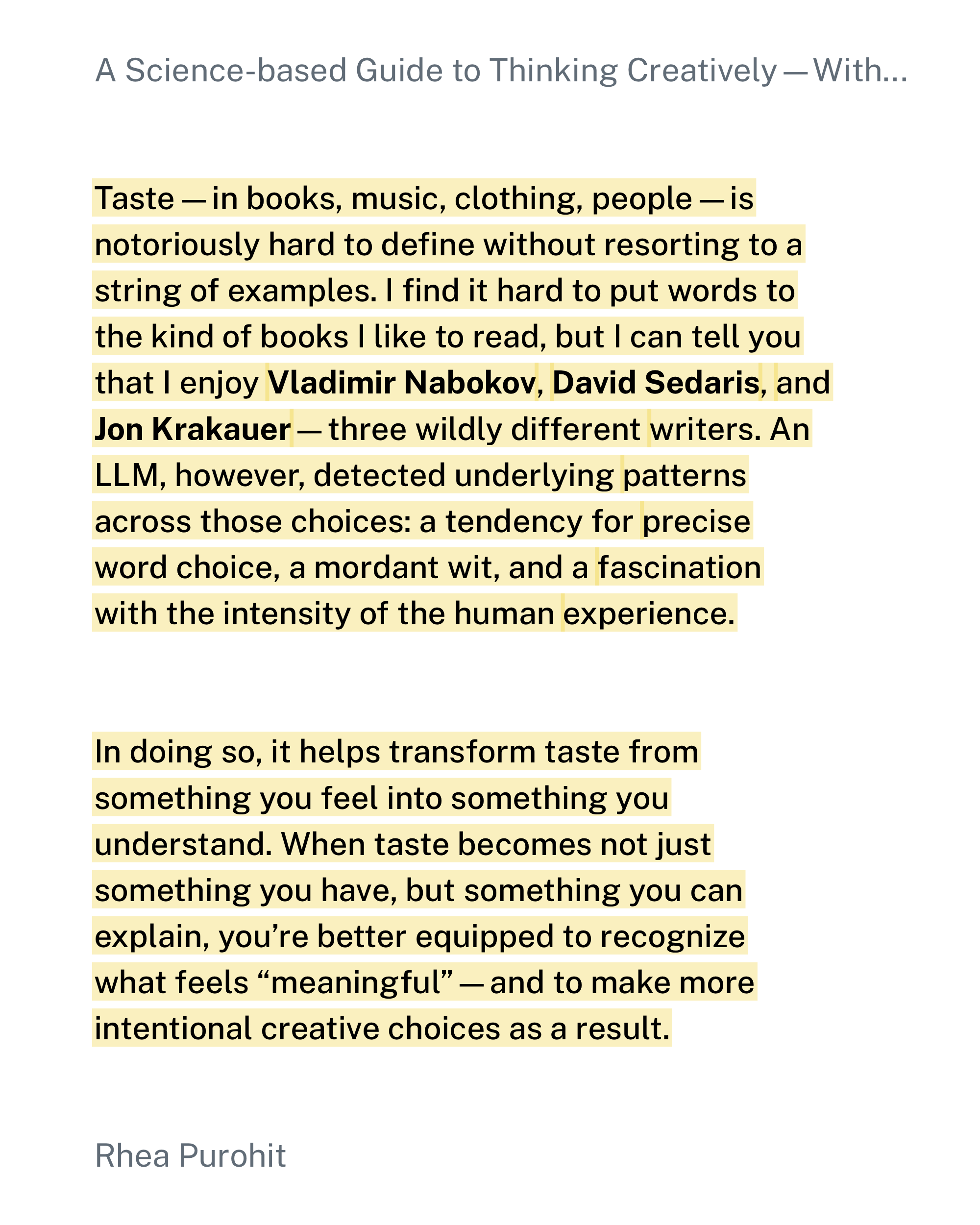Making sense of AI
It may be that working with AI is itself a form of expertise. It is possible that some people are just really good at it. They can adopt Cyborg practices better than others and have a natural (or learned) gift for working with LLM systems. For them, AI is a huge blessing that changes their place in work and society. Other people may get a small
... See moreEthan Mollick • Co-Intelligence: Living and Working With AI
But there are already signs that AI can help. Research has successfully demonstrated that it is possible to correctly determine the most promising directions in science by analyzing past papers with AI, ideally combining human filtering with the AI software. And other work has found that AI shows considerable promise autonomously conducting
... See moreEthan Mollick • Co-Intelligence: Living and Working With AI
The issue is that in order to learn to think critically, problem-solve, understand abstract concepts, reason through novel problems, and evaluate the AI’s output, we need subject matter expertise. An expert educator, with knowledge of their students and classroom, and with pedagogical content knowledge, can evaluate an AI-written syllabus or an
... See moreEthan Mollick • Co-Intelligence: Living and Working With AI
In study after study, the people who get the biggest boost from AI are those with the lowest initial ability—it turns poor performers into good performers. In writing tasks, bad writers become solid. In creativity tests, it boosts the least creative the most. And among law students, the worst legal writers turn into good ones. And in a study of
... See moreEthan Mollick • Co-Intelligence: Living and Working With AI
Some assignments ask students to “cheat” by having the AI create essays, which they then critique—a sneaky way of getting students to think hard about the work, even if they don’t write it. Some assignments allow unlimited AI use but hold the students accountable for the outcomes and facts produced by the AI, which mirrors how they might work with
... See moreEthan Mollick • Co-Intelligence: Living and Working With AI
Imagine introducing high-quality AI tutors into the flipped classroom model. These AI-powered systems have the potential to significantly enhance the learning experience for students and make flipped classrooms even more effective. They provide personalized learning, where AI tutors can tailor instruction to each student’s unique needs while
... See moreEthan Mollick • Co-Intelligence: Living and Working With AI
And while I am sure that in-class essay writing will come back in style as a stopgap measure, AI does more than help students cheat. Every school or instructor will need to think hard about what AI use is acceptable: Is asking AI to provide a draft of an outline cheating? Requesting help with a sentence that someone is stuck on? Is asking for a
... See moreEthan Mollick • Co-Intelligence: Living and Working With AI
One solution to incorporating more active learning is by “flipping” classrooms. Students would learn new concepts at home, typically through videos or other digital resources, and then apply what they’ve learned in the classroom through collaborative activities, discussions, or problem-solving exercises. The main idea behind flipped classrooms is
... See more